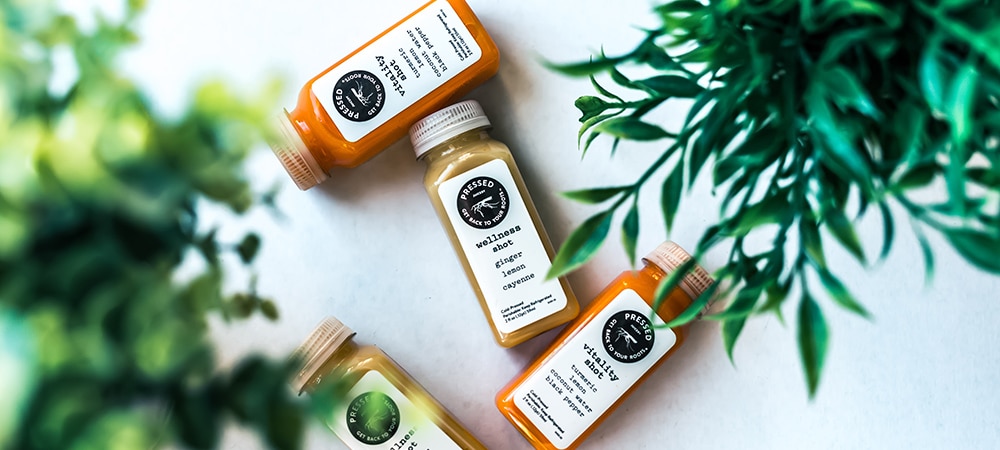When you’re running a product business, choosing a manufacturer is a big decision. It’s easy to get caught up in all of the other choices you need to make, from your tagline to your packaging to your website.
But without a reliable manufacturer, the entire system for your business will stall. Choosing the right manufacturer will keep your business flowing smoothly. Additionally, your manufacturer impacts the quality and price of your products. It’s not a decision to take lightly!
Fortunately, when you understand how the process works, it’s much easier to simplify that decision and find the right manufacturer for your product business.
What does the manufacturing process look like?
The first step in choosing your manufacturer is getting a clear picture of what the process looks like.
Depending on your product and your industry, you might have multiple components of your product—the product itself, the primary packaging, and sometimes even secondary packaging.
Here’s an example of what your product components might be like in the beauty industry:
- Product—the makeup/shampoo/skin cream, etc.
- Primary component—the internal packaging (i.e. the lipstick tube or makeup compact)
- Secondary packaging – the outer packaging (i.e. the box the lipstick tube is in)
In other industries, you might not have secondary packaging, but you’ll likely have your product and your primary packaging.
For example, if you operate a juice business, your product components might be:
- Product—the juice itself
- Primary component—the bottle
Whether you have two or three components, you’ll need to consider design and manufacturing for each. You’ll have to decide what each aspect is going to look like, how you’re going to design it, and who will create it for you.
You can choose to have separate manufacturers for each component, or possibly have one manufacturer take care of all of them.
For each step of the process, you’ll have a wide range of options for manufacturing, ranging from the simplest, least expensive, and the least customized option to more complex options with customization that come at a higher price point.
The more customized options you choose, the more you’ll be able to differentiate yourself in the marketplace. But you have to balance that out with your budget.
Where to find a manufacturer
Once you have an idea of what you want for your products, you’ll have to make your first big decision—do you find a domestic manufacturer or use someone overseas?
There are pros and cons to both options. Overseas manufacturers are often more affordable. But extra fees, such as import taxes and shipping, might negate that benefit. You’ll need to calculate those fees into your decision.
Additionally, there’s an issue with quality control when you are far away. By the time you realize an issue is happening when you ship your products from overseas, it’s harder to correct.
You’ll also need to consider the volume you want produced. If you’re able to purchase large amounts, then overseas might be a consideration. But if you need to start slower and smaller, you’ll want to look for domestic options.
Another factor to consider when choosing domestic or overseas is customer opinion. It’s common for customers to perceive the value of products manufactured overseas as lower. If your target audience is likely to prefer products from the U.S., you’ll have to weigh that decision carefully.
Researching and finding your manufacturer
After you decide on pursuing a domestic or overseas manufacturer, it’s time to start researching your options. There are endless possibilities, but you want to make sure you find a manufacturer who is reliable and trustworthy.
If you can, reach out to your existing network and find out who people you know are using. That way, you have someone to vouch for their work!
You can also consult manufacturer directories. Popular directory options include ThomasNet, MFG, Zycon.
Finally, you can Google manufacturers that specifically produce what you’re looking for. Tread lightly though—always check a manufacturer’s reviews and look them up on the Better Business Bureau to see if they have complaints lodged against them.
The Manufacturing Process by Industry
It’s important to keep in mind your industry and the way that impacts the manufacturing process. Specific industries have different processes for manufacturing. Here are a few specific examples:
The Food and Beverage Industry
In the food industry, you will have to consider the strict regulations in your industry as you choose a manufacturer. You’ll most likely need to work with a co-packer—a facility that will manufacture and package your food.
The co-packer can help guide you through regulations and explain your options for manufacturing.
You might even need to bring in a food scientist or testing facility to ensure that your products are being made safely and efficiently.
The Specialty Food Association Community Hub provides education and resources for the food industry, including guides on working with a co-packer.
The Supplement Industry
Just like the food industry, supplements have strict rules and regulations. It is essential to choose a manufacturer who is GMP certified, meaning they have satisfied current Good Manufacturing Practices requirements.
You’ll also have to decide if you’re going to go the private label, semi-custom, or custom formula route. Private label involves taking an existing supplement product and selling it with your branding. Selling an existing formula lets you avoid the headache of custom manufacturing, such as health and safety testing and certification requirements.
If you are starting a supplement brand based on an idea for a unique product, you will need to find a manufacturer who specializes in custom formulation. Ideally, they have chemists on staff who can test your product for safety and stability and make adjustments as needed. Custom formulas can take up to a year of testing and revisions before they are ready to manufacture and launch.
Private label and semi-custom formulas are less costly and allow you to get to market faster, but your product will be less unique.
The Beauty Industry
Contract manufacturing is common in the beauty industry. The costs of setting up your own manufacturing facility are prohibitive for most new businesses. When working with a contract manufacturer, your options are private label, semi-custom formula, or custom formula.
With private label, you essentially use an existing product with your branding. This simplifies the manufacturing process but gives you limited control over your products.
Semi-custom means you can make some small additions or subtractions to an existing formula. Finally, custom formula means creating your products from scratch, working with chemists and scientists to produce a unique product.
Sometimes you will work with one company that creates the formulas and also manufacturers your product. Other times, you will need to work with multiple companies. That’s something you’ll need to consider when choosing who to work with.
For more information on choosing a manufacturer for the beauty industry, read this article next!
Whatever industry you are in , you’ll need to get familiar with the process and options before you choose a manufacturer so that you can ask questions and ensure that they offer what you need.
How to prepare for the call
When contacting manufacturers, it helps to get a clear picture of what your wants and needs are before you contact them.
Ask yourself these questions before the call:
- What is your budget for your products?
- What do you want to pay for your products, including all of the components, printing, etc.?
- Which parts of your product do you want more customized, and which less so?
- What criteria are necessary to align with your values (i.e. animal testing, using certain ingredients, etc.)?
- What are your must-haves for working with a manufacturer?
You might change your mind on some of those answers along the way, but it helps to know what you’re looking for and what your expectations are before you call!
Minimum order quantities
When you decide to contact a manufacturer, you’ll want to find out what their minimum order quantity, or MOQ, is. That means the minimum amount of products or cost they will let you order.
You’ll want to remember a few key considerations:
- Some manufacturers don’t have a MOQ for products, but they do for the order cost
- MOQs can differ depending on the product components you’re purchasing
When talking with potential manufacturers, clarify your MOQ up front for all of your products!
Takeaway
Research and preparation is the key to finding a reliable manufacturer for your product. Consider all of your needs, including budget and priorities, before you make a decision.
Of course, you can always change your manufacturer down the line, but you want to ensure that you don’t lose momentum when you’re launching by choosing the wrong manufacturer.
Need more tips to help your business get started? Read our post, Use This Tool to Find the Right Customer for Your Product Business next!
Resources used in this article
- Industrial Marketer. Tools of the trade: industrial directories.
- ThomasNet: product sourcing and supplier discovery platform.
- MFG: the world’s largest custom manufacturing marketplace.
- Zycon: the search engine for manufacturers.
- Better Business Bureau
- Zemser, Rachel. From concept to commercialization: 10 steps to getting your food product to market. LinkedIn.
- SFA Community Hub: co-packing and production.
- Beauty Independent. How indie beauty brands identify the right contract manufacturers for them.
- Crème de Mint. How to choose the right manufacturer for your beauty product.
- Crème de Mint. Use this tool to find the right customer for your product business.
Crème de Mint has specialized in beauty, food and supplement packaging design for more than 15 years. Our CPG branding agency knows how to create compelling, craveworthy designs that can help your brand stand out! Book a call today to chat with us about your packaging design.



